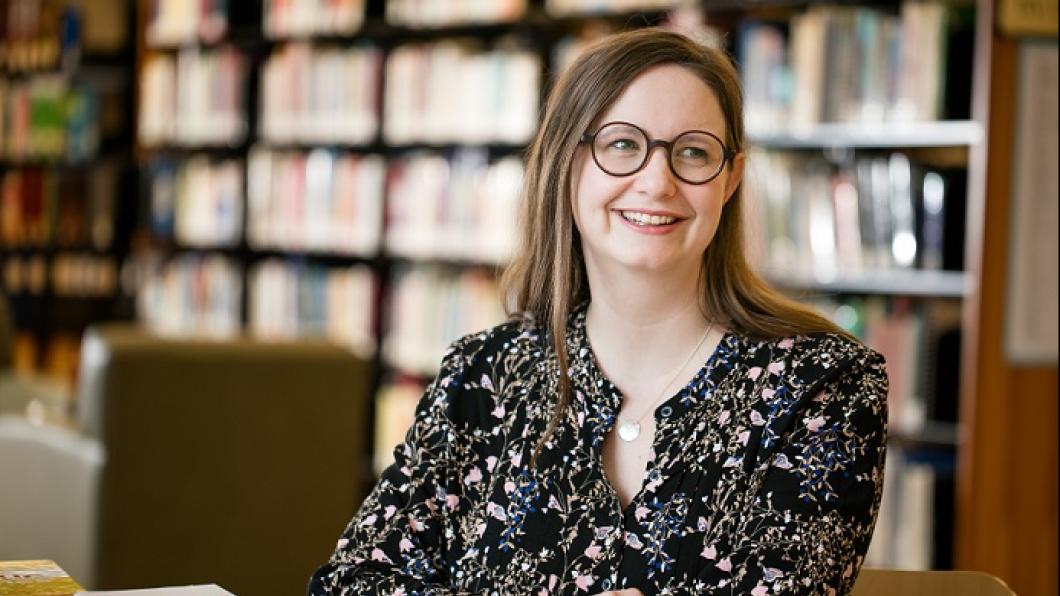
Holland Bloorview's research institute leads international team to study phenomenon that is a growing concern
Holland Bloorview Kids Rehabilitation Hospital’s Bloorview Research Institute is leading this international research team.
Autistic people are often on the receiving end of online hate speech. But, according to the researchers, recent reports suggest some individuals on the spectrum are participating in hate speech forums themselves – a phenomenon that is a growing concern among clinicians and experts in the autism field. (Note: Many autistic self-advocates prefer to use identify-first language rather than people-first language in describing themselves. With this in mind, we are consciously choosing identify-first language for the purposes of describing and reporting on this study.)
“While we don’t know how many autistic people are posting in these radical online communities, we want to emphasize that our research team believes this is a very small subset of the autistic population,” said Dr. Melanie Penner, lead author of the study and an autism expert at Holland Bloorview’s Autism Research Centre.
“Right now, we have some reports from media and clinicians that autistic people are participating in internet sites known to be associated with online hate. However, we do not know what is driving this participation. This is what we intend to find out.”
An international research team from Canada, the U.S and the U.K. will embark on a two-year study funded by a prestigious New Frontiers in Research Fund grant. This team comprises autism and hate studies experts, health-care practitioners, as well as people with autism and lived experience with online hate extremism.
First, the researchers will use natural language processing fueled by machine learning to identify posts in online hate speech forums written by those who self-identify as autistic.
The team will also interview autistic people who are currently or formerly involved in these types of forums. Their goal? To understand the life factors that may influence their participation, such as unemployment, social isolation, and whether certain aspects of autism increases a person’s risk of becoming involved with online hate forums.
Using the study’s findings, the researchers will develop strategies that will both keep autistic people from joining and support other participants to leave and get assistance. These prevention measures can include collaborating with autistic clients and their families to develop evidence-based materials on internet safety. The researchers will also create a toolkit for health-care professionals to recognize and respond to signs that their autistic clients may be participating in hate speech forums.
“The results from this study will help us pinpoint early signs of problematic internet use, so that caregivers, educators and clinicians can help,” said John Elder Robison, a co-chair of the Neurodiversity Work Group at the U.S-based College William & Mary, who is autistic. “We don’t have any evidence to guide disengagement approaches for autistic people, so this information will be helpful in modifying existing disengagement approaches to meet their needs. I also hope that an exploration of other life factors that may influence engagement with hate can help us understand how we can support autistic people thrive in our communities.”
Co-investigator Christian Picciolini, founder of the U.S.-based Free Radicals Project, says in his intervention work over the past 20 years, he can recognize a pattern of common experiences and traits that can make certain individuals, including those who are autistic, particularly susceptible to extremist tactics.
“As a former extremist, I know how hate groups prey on vulnerable populations,” said Picciolini, whose organization helps some 100 autistic people, some of whom would participate in the study. “I am looking forward to further developing evidence-based strategies to help them and others disengage from hate and extremism.”
“I am extremely proud of the cutting-edge interdisciplinary work that Dr. Penner and her research team are undertaking with autistic individuals, thanks to the generous funding from our federal government,” said Tom Chau, vice president of research at Holland Bloorview’s Bloorview Research Institute. “Dr. Penner is pioneering new research that will ultimately empower those susceptible to participation in extremist cyber-forums with effective safeguards against hate propaganda and its deleterious effects on health.”
The researchers hope that once their study is completed, it will give parents and healthcare professionals the tools they can use to develop better approaches to guide children, teens and young adults with autism who may be participating in these online hate spaces.
For now, Penner suggests connecting with a trusted professional. “For those who may be seeing some engagement with online hate in their child or for someone who is already engaged and wishes to get out, the first step is to speak to your doctor, or another trusted professional.”
Her advice for parents? “Create an environment where you can have an open and honest conversation about internet use, including both risk and benefits. It’s important to have that open dialogue.”
The research team:
- Principal Investigator:
- Dr. Melanie Penner, Holland Bloorview, Bloorview Research Institute, and assistant professor, Department of Paediatrics, University of Toronto, Canada
- Co-investigators:
- John Elder Robison, College of William & Mary, U.S.
- Barbara Perry, Ontario Tech University, Canada
- Suzanne Stevenson, University of Toronto, Canada
- Christian Picciolini, Free Radicals Project, U.S.
- Collaborators:
- Dr. Rachel Loftin, Department of Psychiatry, Yale School of Medicine, U.S.
- Christie Welch, Autism Research Centre, Holland Bloorview, Canada
- Patrick Jachyra, Centre for Addiction and Mental Health, Canada
- Simon Baron-Cohen, Autism Research Centre, University of Cambridge, U.K.
- Ricardo Rivera, Southern Poverty Law Centre, U.S.
- Azadeh Kushki, Autism Research Centre, Holland Bloorview, Canada
- Dr. Alexander Westphal, Department of Psychiatry, Yale School of Medicine, U.S.